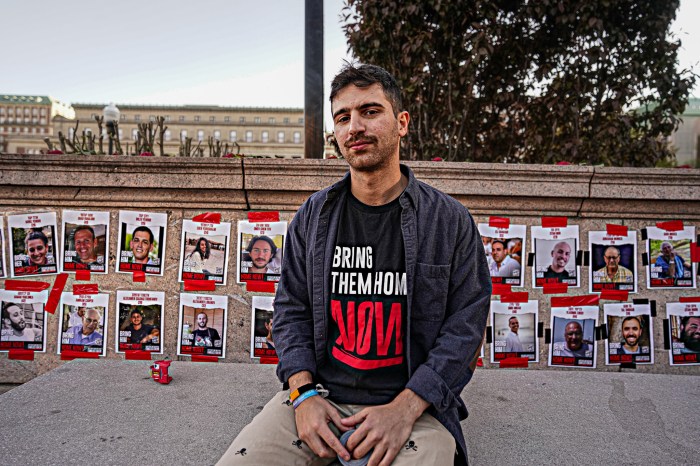Since medical marijuana in New Jersey went into law in Jan. 2010, a series of setbacks has meant that thousands of eager and ill residents likely won’t be lighting up any time soon.
“I get four or five calls a day from patients – people with ovarian cancer, MS – asking me when we’re going to open because they’re buying the product now illegally,” said Bill Thomas of the Compassionate Care Foundation, one of the six nonprofits awarded a contract in March to act as a cultivation and treatment center. “I’ve received 300 phone calls from people with disabilities and we estimate there are 40,000 people right now buying marijuana illegally in New Jersey to treat disabilities.”
Still, after a year of politicking and legislation, none of the treatment centers have opened their doors.
“The timetable for each alternative treatment center has many variables,” said Donna Leusner of DHSS. “Chief among them is the municipal approval processes that the ATCs are confronting in the respective localities.”
In the latest setback, Upper Freehold township committee members said at a Tuesday meeting that they would attempt to bar Breakwater Treatment Center from opening in the area. In October, Maple Shade’s Zoning Board rejected Compassionate Science’s application and Bergen County officials shot down Foundation Harmony’s plans in Moonachie.
Only two dispensaries have signed physical leases – Greenleaf Compassion Center in Montclair and the Compassionate Care Foundation in Westampton – but the latter’s future may be up in smoke. “We were just notified on Wednesday that we have to go before zoning, but we’re in discussions with the town because they originally told us we were approved for the use,” said Thomas. He said they now may have to find a different location.
New Jersey’s Department of Health and Senior Services posted new applications for the six nonprofits to fill out last Monday, but the nonprofits must have municipal approval before they are given the final state approval, creating a legislative Catch-22. “We applied to apply,” Thomas said. “We applied and got approval to apply back in March and yesterday they sent us a package where we have to update our information … We have no problem, but it’s a process we have to go through. Because of this we’re not going to be open until the summer.”
Greenleaf Compassion Center, whose location is secured at the site of a former head shop on Bloomfield Avenue, must go through the same process. “We’ve been letting patients know we’ll call as soon as we receive a final permit from DHSS. We could be up and running within four months,” due to the time it takes to cultivate the crop, said Joe Stevens.
But Greenleaf is not allowed to begin growing the crop until its final permit is approved, which could take a while – once DHSS declares the forms complete, they have 60 days to make a decision.
“I would think that everybody, including the government and Department of Health is frustrated together,” said Thomas. “We’ve all been working together to try to get this done. It’s something new.”
Many rules, little action
When it comes to assigning blame for New Jersey’s sluggish pot process, some think the alternative treatment centers are just as culpable. “The other alternative treatment centers, from what I understand, have no location and aren’t ready to be up and running, so I think if there’s blame anywhere, it should be on the ATCS as well as the state,” said Stevens of Greenleaf.
But the state has certainly been slow on its part, as well. Though rules altering Corzine’s original act, making it the strictest in the country, were re-proposed in November of 2010, they were not adopted until last Wednesday and will go into effect Dec. 19, 2011.
Under the new rules, medical marijuana use is limited to patients with debilitating conditions including multiple sclerosis, glaucoma and terminal cancer. Additional debilitating medical conditions will not be eligible under the program until DHSS makes at least two annual reports to the Governor and State Legislature. Furthermore, patients must obtain referrals from doctors they have been seeing for at least a year despite the fact that physicians must pre-register with DHSS to offer the service and only 108 in the state have done so thus far. It is unclear how patients whose doctors are not registered will receive the treatment or even locate doctors who are eligible to provide it.
The rules also enforce a 10 percent THC limit, allow only three strains of marijuana and limit the quantity to two ounces a month per patient. Patients will have to show proof of New Jersey residence and obtain medical marijuana id cards, Leusner said.
Timeline
New Jersey in January 2010 became the 14th state in the nation to legalize the use of marijuana for certain chronic medical conditions and is now among 16 states in the U.S. and the District of Columbia that have programs.
– January 18, 2010 New Jersey Gov. John Corzine signs into law the New Jersey Compassionate Use of Medical Marijuana Act on the last day of his administration
– November 16, 2010 New Jersey Department of Health & Senior Services re-propose much stricter rules for the act
– January 2011 NJ’s DHSS issues a request for applications for nonprofits who wish to run the six treatment centers allowed under the law
– March 21, 2011 Gov. Chris Christie announces the selection of six nonprofit groups who will be allowed to operate treatment centers: Breakwater Alternative Treatment Center in Manalapan, Monmouth County; Compassionate Care Centers of America Foundation, Inc. in New Brunswick, Middlesex County; Compassionate Care Foundation, Inc. in Bellmawr, Camden County; Compassionate Sciences, Inc. in either Burlington or Camden County; Foundation Harmony in Secaucus, Hudson County; Greenleaf Compassion Center in Montclair, Essex County
– June 15, 2011 Christie announces the suspension of the medical marijuana process, saying that he has been waiting since April for assurance from the federal government that providers will not be prosecuted and won’t allow the drug to be dispensed until he receives it
– July 19, 2011 Christie announces reversal of suspension, saying he has instructed officials to move program forward “as expeditiously as possible”
– October 12, 2011 Maple Shade’s Zoning Board rejects Compassionate Science’s application for a location in a former furniture store along Route 73
– October 2011 Bergen County officials reject Foundation Harmony’s plans to open in Moonachie
– October 2011 Compassionate Care Foundation, Inc. signs lease in Westampton, Burlington County, but receives letter Nov. 23 that they will have to go before local zoning board before winning approval
– November 14, 2011 Greenleaf Compassion Center announces at Montclair Township Council Conference that they will open on 395 Bloomfield Avenue in the site of a former head shop pending state approval
– November 21, 2011 New Jersey State Health and Senior Services Department posts on its website forms alternative treatment centers need to fill out to do business
– November 22, 2011 Upper Freehold town hall committee members seek ordinance to block Breakwater Alternative Treatment Center from opening in the area
– November 23, 2011 Notice of final adoption of November 2010’s re-proposed rules sent to the state Office of Administrative Law, to take effect Dec. 19, 2011






























